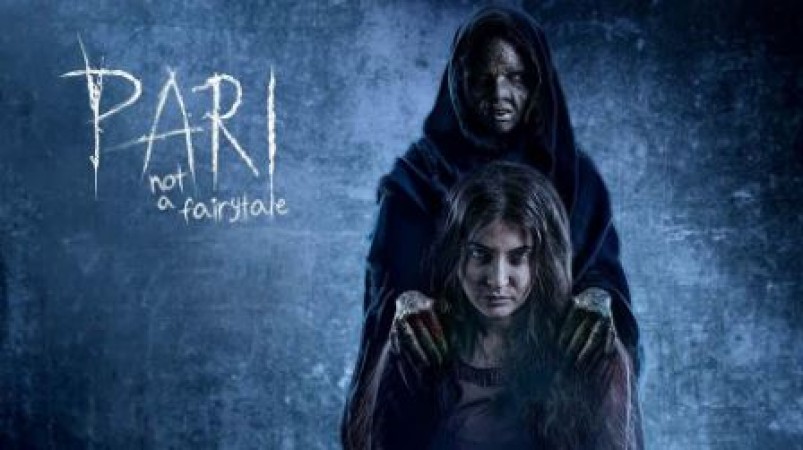
Within the film industry, motion pictures frequently act as a mirror, reflecting the nuanced realities of human nature, culture, and society. But occasionally, a movie's content causes it to become a contentious topic, provoking discussions and even leading to restrictions. One such movie that caused a lot of controversy is "Pari," which was outlawed in Pakistan due to claims that it promoted anti-Islamic sentiment. This essay will explore the history of the movie, the rationale behind the restriction, and the wider ramifications of such restrictions on the freedom of expression and the arts.
"Pari" is a 2018 Indian supernatural horror film, produced by Anushka Sharma and directed by Prosit Roy. The film centres on the protagonist Rukhsana, played by Anushka Sharma. She is discovered in the woods, bruised and chained, by a kind man named Arnab, who is played by Parambrata Chatterjee. Rukhsana is clearly not an ordinary woman; rather, she is a part of a supernatural world that is full of unsettling and sinister elements as the story progresses. The horror genre serves as a backdrop for the film's exploration of themes of love, fear, superstition, and social conventions.
The Pakistani government's prohibition on "Pari" has multiple reasons:
Said to Have Anti-Islamic Content: The main argument put forth for the film's prohibition was its alleged anti-Islamic content. Some dialogue and scenes in the film have raised concerns from the Pakistan Central Board of Film Censors (CBFC) that they may be interpreted as blasphemous or offensive to Islamic beliefs. Such worries are paramount in Pakistan, a country inhabited primarily by Muslims.
The supernatural and occult themes explored in "Pari" frequently feature ominous and unsettling imagery. Since Islam forbids investigating the paranormal and occult, some critics claimed that these components were contrary to the religion's teachings.
Fear of Negative Influence: Another defence offered by those in favour of the ban was the concern that the movie might have a negative impact on young viewers' minds. They thought that "Pari" would promote superstitions and that its depiction of supernatural beings would lead to a skewed perception of spirituality and the forces that are invisible to the human eye.
Cultural Norm Violation: There were concerns raised by the film's examination of societal norms, particularly as they relate to Rukhsana's character, who questions traditional gender roles. Critics speculated that this might cause a disruption in Pakistani cultural norms.
Lack of Clarity in Censorship Policies: Pakistan has a history of inconsistent censorship policies, much like many other countries. Subjective decisions that differ depending on the circumstances have frequently resulted from the absence of clear guidelines and objective standards for censorship decisions.
The Pakistani ban on "Pari" brings up a number of important questions about artistic freedom, freedom of speech, and the function of censorship in society:
Artistic Freedom: The freedom to express one's creativity, question social norms, and investigate a wide range of topics is a fundamental right for artists. When films like "Pari" are outlawed, it begs the question of how far artists are willing to go in exploring difficult subjects.
Freedom of Expression: Censorship must balance with freedom of expression, even though it is occasionally required to safeguard the public interest. The outlawing of "Pari" serves as a stark reminder of the difficulties in striking this equilibrium and the restrictions placed on artistic expression by the government.
Impact on Filmmakers: Because they devote a great deal of time, energy, and resources to their work, filmmakers are adversely affected by the ban. These prohibitions may deter filmmakers from exploring bold and avant-garde subjects out of concern for possible censorship.
Public Reaction: When a movie is banned, it frequently piques people's curiosity and interest, resulting in conversations about the movie and the reasons behind the ban. On occasion, though, this can work in the opposite way, bringing greater attention to the movie and its themes.
Censorship Authorities' Role: The "Pari" case emphasises the necessity of uniform, clear guidelines so that they can make transparent, well-informed decisions. By establishing such guidelines, accusations of political or religious bias as well as arbitrary bans can be avoided.
It is important to remember the nuanced relationships between art, culture, and censorship in light of the Pakistani ban on "Pari" due to its purportedly anti-Islamic content. Upholding artistic freedom and freedom of expression is just as important as safeguarding religious sentiments and cultural values, although these concerns are legitimate. To find a balance that honours both, censorship must be handled delicately and openly.
The debate over what constitutes offensive or anti-religious content will only intensify as societies change. It is imperative that nations such as Pakistan set explicit rules regarding censorship, hold candid conversations with artists, and provide forums for content-related discussions that transcend cursory assessments of a movie's likelihood to cause offence. While honouring the values and opinions of the majority, such initiatives can contribute to the development of a society that is more welcoming, inclusive, and culturally active.
Varun Dhawan's Unparalleled Dedication to 'Sui Dhaaga' Role
Remembering the Man Behind the Music: Kishore Kumar's 36th Death Anniversary
Bollywood's New Trend: Shah Rukh Khan Engages Fans to Name His Film